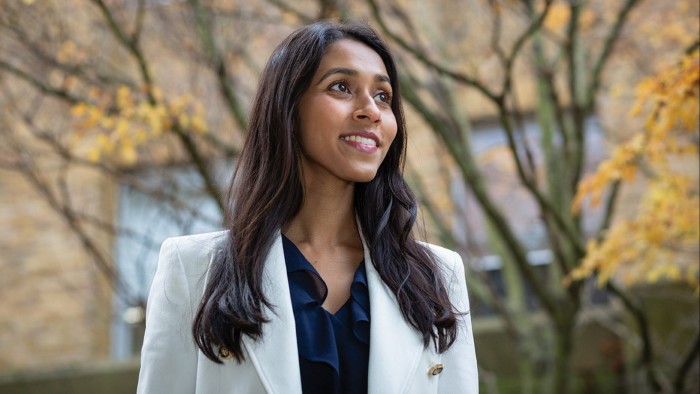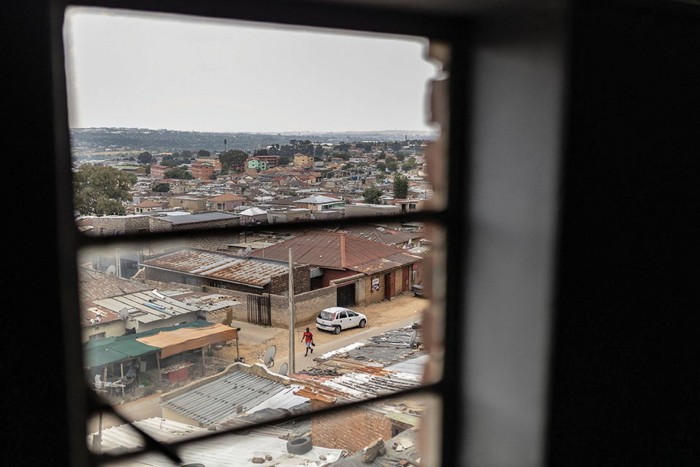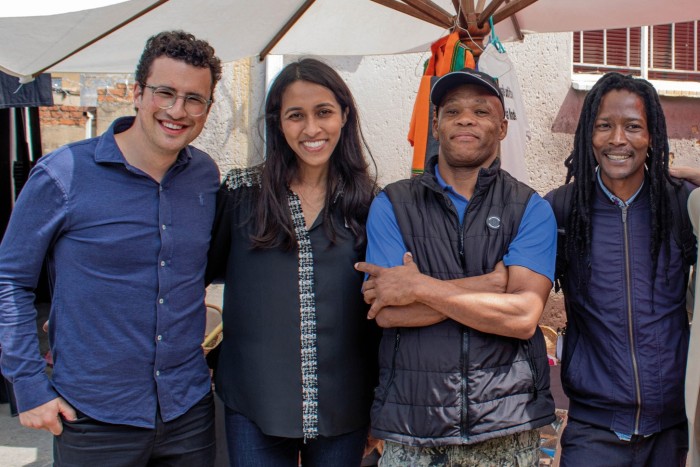MBA projects target real-world impact

Roula Khalaf, Editor of the FT, selects her favourite stories in this weekly newsletter.
There were no neat rows of data ready to crunch when Varuni Fernando and her London Business School classmates arrived in the Johannesburg township of Alexandra for a consulting project with a local micro-enterprise. The client, a tile retailer, had no access to a computer.
“People would pay him in cash,” says Fernando, who is Australian-Sri Lankan. “Luckily, we had the invoices from his suppliers. So, we introduced manual book-keeping so that, once he knew what profit he was making from each customer, he could target larger customers who he gets more profit from with less effort.”
The project last October was part of the Global Experience course at LBS, in which students apply their learning in unfamiliar settings, often delivering a real-world impact. Alexandra is one of the poorest urban areas in South Africa, so the group’s recommendations helped make a social difference. But the visit also enriched learning by the students.
“It is pretty much the best part of the MBA so far,” says Fernando, who graduates this year. “Going on this trip reiterated a sense of responsibility — to give back and pay forward your education to people who are far less fortunate than you and have multiple generations of disadvantage,” she explains.
Global MBA Ranking 2023

View the MBA ranking and report. Register for the February 22 Spotlight on MBA online event, and the MBA 101 guide to getting into business school
Consulting projects, where students complete assignments for real organisations, have long been a core part of the MBA curriculum. But, in recent years, business schools have placed greater emphasis on projects where students work on environmental and social challenges around the globe, helping with everything from lowering carbon emissions to creating more equitable and inclusive working practices.
Such projects are becoming increasingly popular with MBA students who want to use their business knowledge and skills to deliver positive change in the world. Donald Lancaster, director of MBA programmes at University of Exeter Business School in the UK, says participants “want to develop skills, knowledge and understanding in areas that help them develop a more responsible leadership profile”. Consulting projects are mandatory at the school.

Lancaster says such projects chime with a broader emphasis on responsible management education. “Having leaders educated in the triple bottom line [people, profit and planet] is going to be really important for companies,” he says. “The classic profit-maximisation model is probably going to be consigned to history.”
As sustainability moves up the corporate agenda, the supply of impact-related projects is expanding. “We’ve seen a significant growth in the number of organisations that can benefit from expertise delivered through MBAs with deep knowledge of traditional business, as well as sustainability,” says JP Eggers, vice-dean of MBA and graduate programmes at New York University’s Stern School of Business.
“As we’ve seen sustainability-linked content come into the curriculum, the logical extension is to look for ways for students to put that knowledge into practice,” he says. Each semester, Stern’s Center for Sustainable Business helps connect MBA students with organisations to address their sustainability challenges.

One of those students is Yurany Hernandez. Her project in spring last year focused on how to make Gran Plaza Cancún, a Mexican shopping mall, more environmentally friendly. Her team’s recommendation was to partner with non-governmental organisations so that shoppers could donate unwanted clothes to vulnerable communities, instead of generating waste.
“This project taught me how innovation plays a central role in finding new solutions to reduce the negative impact of business on the environment,” says Hernandez, who is Colombian. A critical part of the project’s success was the support she received from both a faculty adviser and the chief executive of the company that owns the mall. “These projects are a very safe space to learn,” says Hernandez.
Kirstie Papworth, executive director of experiential learning at LBS, says these projects also challenge preconceptions. “Students arrive to impart knowledge but they leave thinking they have as much to learn,” she says, adding that it also spurs interest in changing the way the world does business. “When students see the impact, it opens their eyes to what else they can do. Showing students you can start small and scale — that is a really impactful thing to do.”
Schools are also finding that these tasks are invaluable in supporting students who, increasingly, want to pursue a purpose-driven career. David Suarez, vice dean of Spain’s IE Business School, says, “Students want to do a project that has a social impact, and that is consistent with the fact that they are not necessarily looking for the highest paying jobs; they are measuring impact in different ways.” IE Business School’s “Impact Projects” allow MBA students to apply their skills to a challenge faced by companies.
Alexsandra Marzocca studied on Exeter’s MBA programme between 2020-21 and carried out a consultancy project with the Canadian company McCain, which makes frozen chips. She made recommendations on how to improve the recovery of plastic and paper from fast-food restaurants that McCain supplies. Her proposals included making the company’s cardboard boxes easier to break down for recycling — a customer pain point that she identified using surveys.
The alumna partly credits the project with her securing a job as a sustainability consultant after the MBA. “It illuminated the behavioural economics behind big companies’ choices to recycle or not,” says Marzocca, a former theatre director.
That learning is directly relevant to her current role, which involves helping corporations to reduce or offset their environmental impact. “I’m cleaning up after capitalism,” she says.
Comments